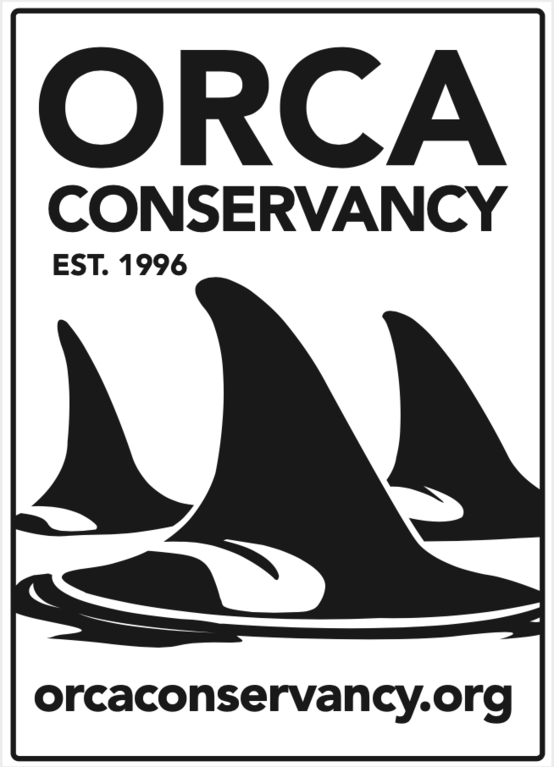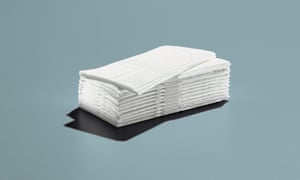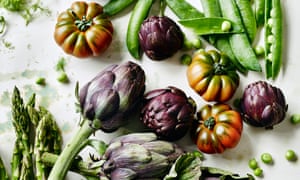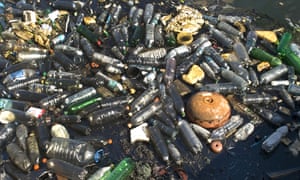Earth Day! Five Simple Things You Can Do To Make A Difference!
Do our individual actions really make a difference? YES!
 Here are five SIMPLE things from theguardian that we can all do to make a difference today. But, instead of doing this just on Earth Day - - let's push to make change today and every day! :-)
Here are five SIMPLE things from theguardian that we can all do to make a difference today. But, instead of doing this just on Earth Day - - let's push to make change today and every day! :-)
Stop buying one-time-use items like paper towels
Paper towels: use rags or towels instead. Photograph: AlamyWe buy paper towels largely because we’ve always bought paper towels. It’s been almost a decade since I bought some, and I don’t miss them one bit. Promise. Use rags or cloths instead, toss them in with your weekly wash and you’re all set. By doing so you’ll save money and a few trees too. If every household in the US used just one fewer 70-sheet roll of virgin fibre paper towels, we’d save 544,000 trees from the chainsaws every year – not to mention the energy used in their production and transportation. Even if this column fails to somehow solicit the cooperation of every household in this endeavour, crossing kitchen rolls from just some of our shopping lists can have a huge impact.
Refuse plastic bags
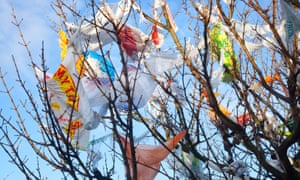 Use your own two hands instead of plastic bags if you’ve bought just a few small items. Photograph: Mar Photographics/AlamyWhen you’ve bought just one small item or a few which could be easily carried, politely refuse the bag they’re about to be put in. Carry your purchases with your own two hands and bring reusable bags for larger shopping trips. If this seems tiresome, let me lay some guilt down by sharing this heartbreaking statistic: more than 100,000 marine animals die every single year from getting tangled in plastic bags or ingesting them. One million plastic bags are used every single minute worldwide. They’re used for an average of five minutes, yet take 1,000 years to break down. We’re better than this!
Use your own two hands instead of plastic bags if you’ve bought just a few small items. Photograph: Mar Photographics/AlamyWhen you’ve bought just one small item or a few which could be easily carried, politely refuse the bag they’re about to be put in. Carry your purchases with your own two hands and bring reusable bags for larger shopping trips. If this seems tiresome, let me lay some guilt down by sharing this heartbreaking statistic: more than 100,000 marine animals die every single year from getting tangled in plastic bags or ingesting them. One million plastic bags are used every single minute worldwide. They’re used for an average of five minutes, yet take 1,000 years to break down. We’re better than this!
Be meat- and/or dairy-free once a week or more
Vegetables: nutritious, and much more environmentally friendly than meat. Photograph: Martin Poole for Observer Food MonthlyI covered this extensively in an earlier article, but decreasing your meat intake by just one burger a week can result in the same environmental benefit as taking your car off the road for 320 miles (515km). Ditching the dairy can also confer significant health benefits, reducing fat intake and slashing risk factors for chronic illnesses such as cardiovascular disease or type-2 diabetes. Understandably, going completely vegetarian or vegan can be an intimidating prospect, so avoid biting off more than you can chew by simply committing to doing it once a week.
Dive into secondhand shopping and natural fibres
Consignment shops: doing their part for Mother Nature. Photograph: Matt Cardy/Getty ImagesThe clothing industry looks damn good but it can be a dirty, dirty business. Immense amounts of resources are used in textile manufacturing, fast fashion is everywhere, and 85% of shoreline plastic pollution comes from the plastic fibres in synthetic clothing material such as nylon. Avoid the mall and find a great secondhand or consignment store instead.One study reported that the environmental impact of clothing sold by just one Swedish secondhand store chain, Emmaus Björkå, was a reduction of 7GWh of energy, nearly 1,500 tonnes of CO2 emissions and 947,000 cubic metres of water annually. Now that looks good.
Carry your own utensils and reusable water bottle
‘If you went a year without buying even one plastic bottle, you’d single-handedly save over 7,000 litres of water.’ Photograph: Image Broker/RexThis is a no-brainer for large-purse-loving ladies like me, and easily achievable if you’re a classy man who likes to rock a man bag (murse?). You can buy a kit of bamboo utensils or just pop a spare knife, fork and spoon into your bag with a reusable water bottle or jar, and even a stainless steel straw or chopsticks, depending on your eating habits.If you do have to eat on the go, this saves the use of plastic utensils and plastic water bottles. By adding these items to your bag, you’ll make a dent in the 40m plastic utensils used in the US alone each year. In the UK, plastic cutlery is used for seven minutes before being discarded. Seven minutes for something which will never, ever biodegrade.And as for the bottles, well, it takes seven litres of water to make one plastic water bottle. Really. It’s estimated that each person in the UK uses approximately 200 water bottles each year, so if you went a year without buying even one plastic bottle, you’d single-handedly save over 7,000 litres of water.
